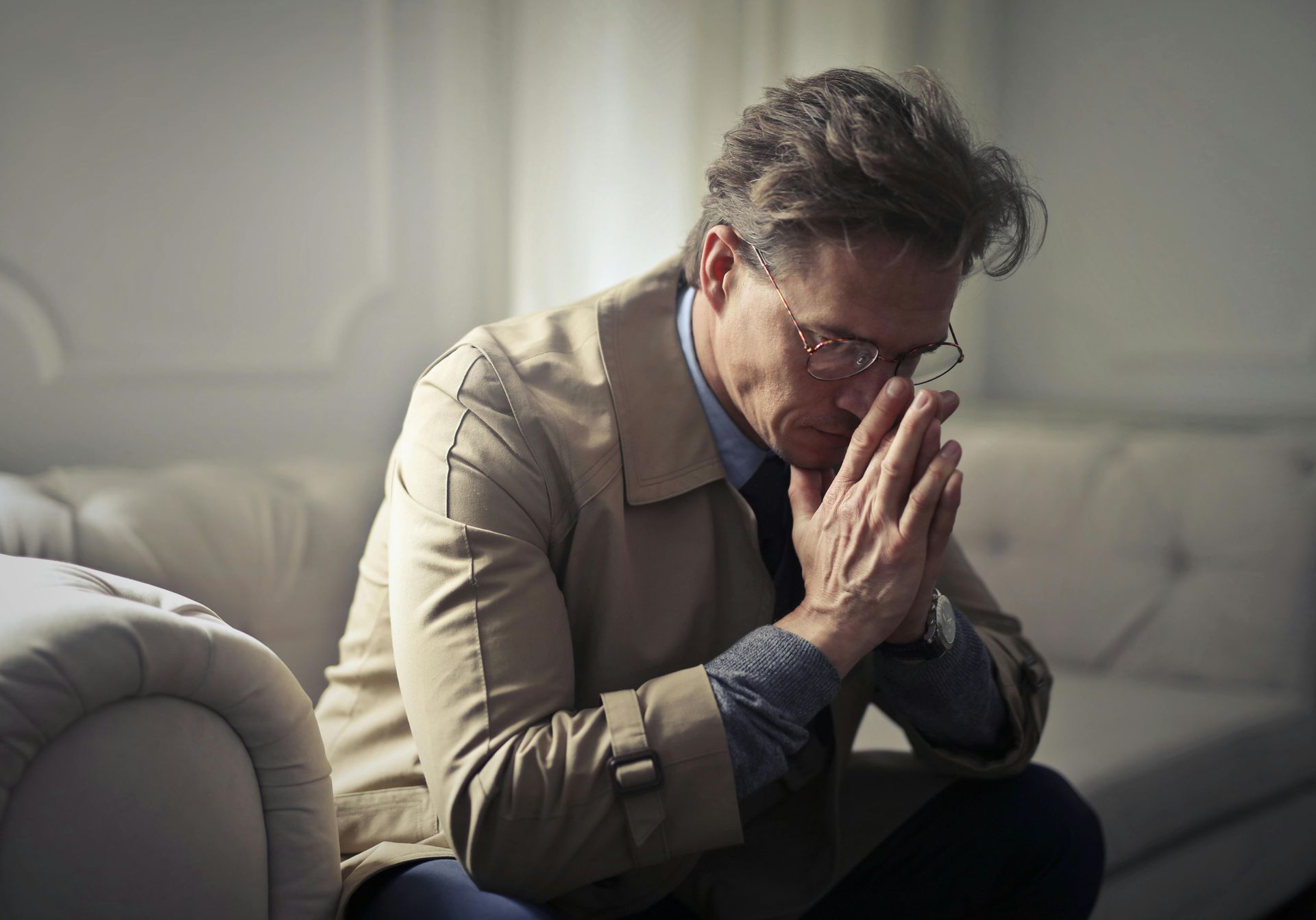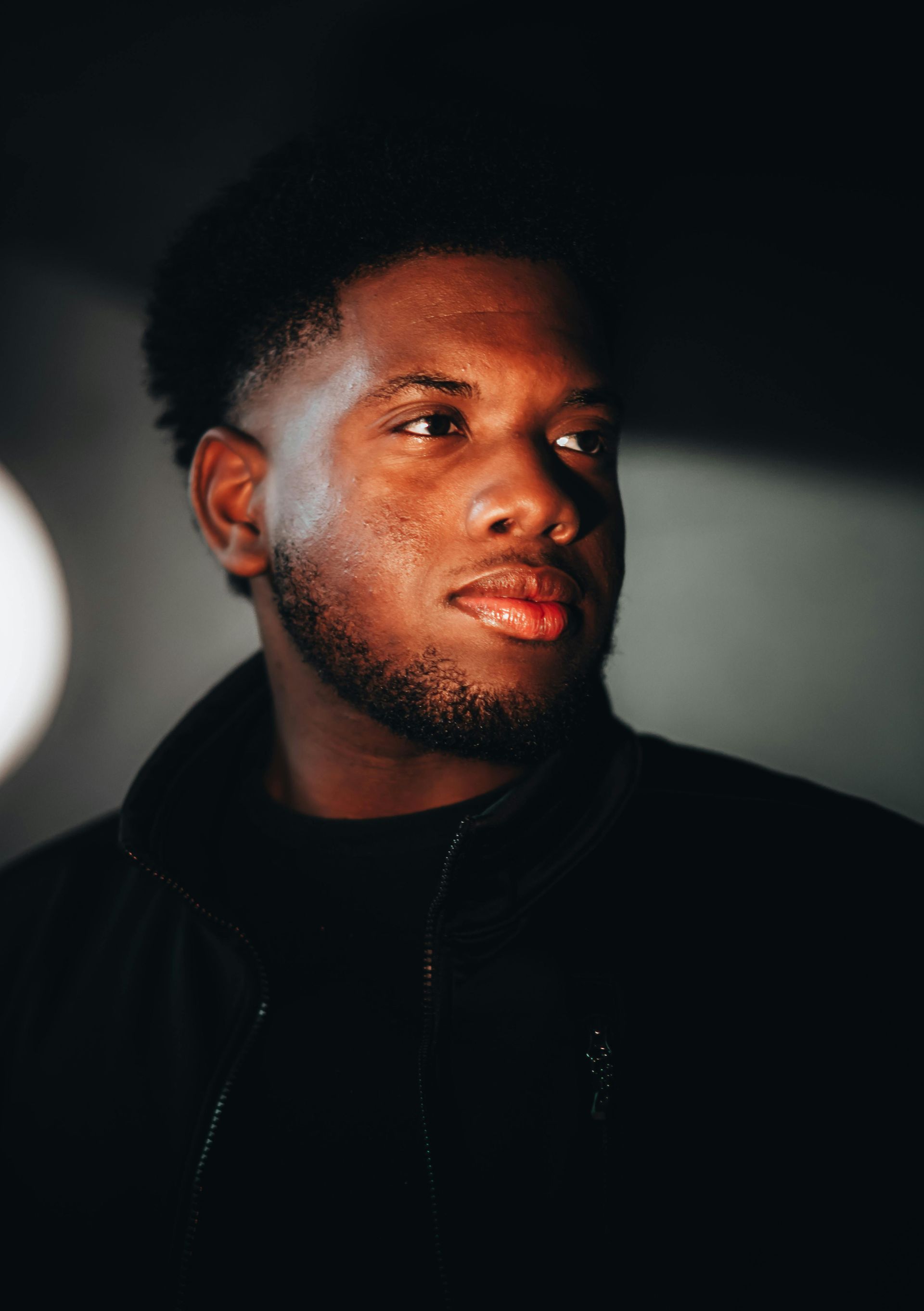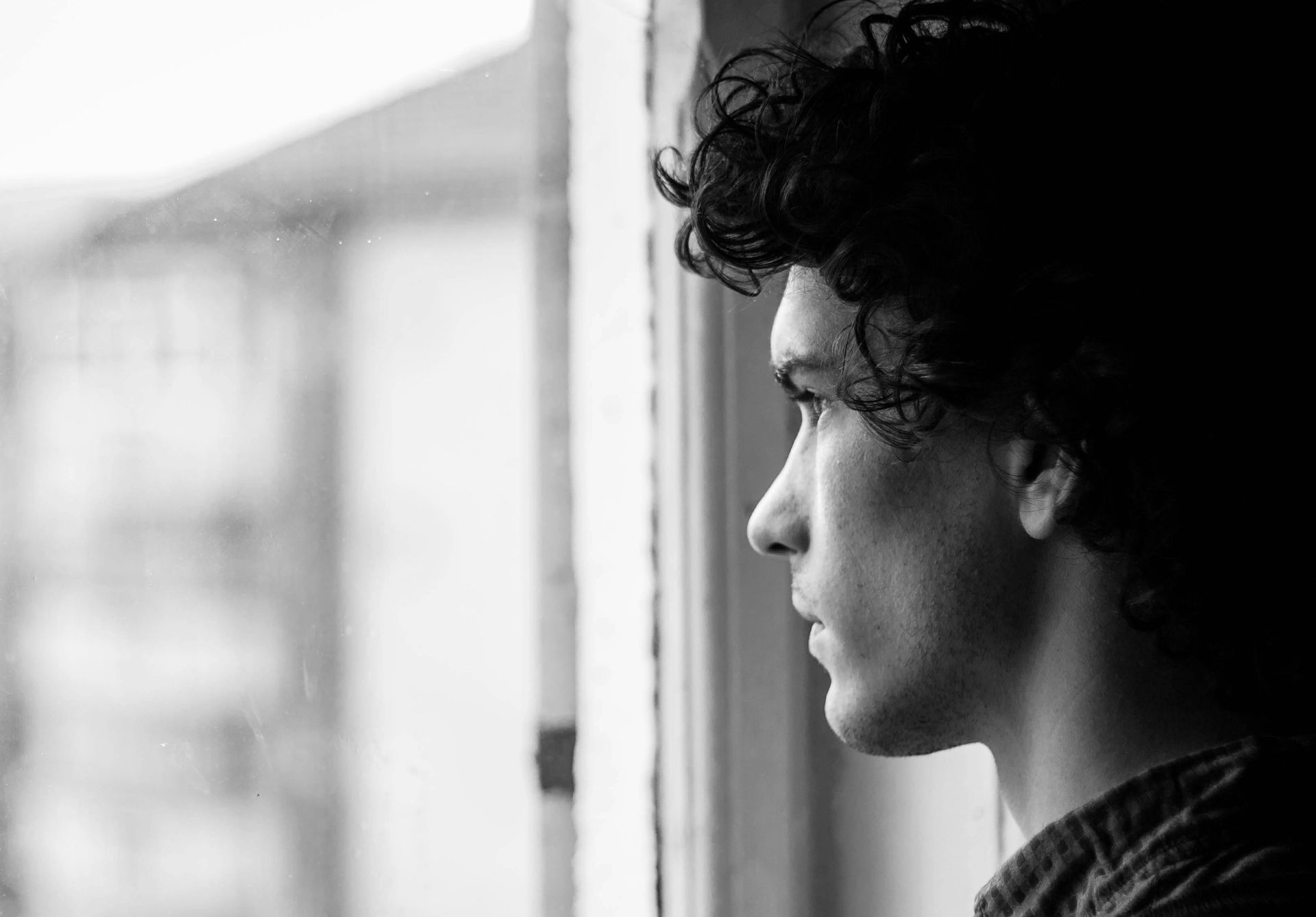Why Depression In Men Often Goes Unnoticed-💜
CNS Healthcare • March 7, 2025
Many understand that depression is quiet but dangerous condition that can affect people of all
races and ages. However, depression in men is often overlooked, leaving many men to suffer alone in silence. Part of the reason that
depression in men may be
harder to recognize is because men tend to show
anger or physical symptoms like pain instead of sadness.
While physical symptoms of depression might be harder to identify, there are ways to spot the warning signs. This post will help you to better understand those signs, as well as educate you on when you should seek out additional help.
Key Takeaways
- Anger, irritability, or physical symptoms like fatigue and pain are common symptoms of depression in men which make it more difficult to spot.
- Social norms prevent many men from seeking help since men tend to hide their emotions and see vulnerability as weakness.
- Untreated depression in men is common due to the stigma around mental health, increasing the risk of substance abuse and suicide.
- Recognizing early signs of depression, like mood swings or chronic pain, can prevent suicide attempts and save lives.
- Taking advantage of professional support like therapy can encourage open conversation and be a key step towards healing depression.
Understanding Depression in Men
Men and women display different symptoms when it comes to depression. Much of this is due to the social pressures that men are held to, which can mask signs of depression and make it much more difficult to diagnose.
How depression manifests differently in men
While sadness is the primary symptom that usually comes to mind when thinking about depression, men instead show symptoms like
anger, irritability, or engaging
in
risky behavior. It's more likely that you'll notice aggression or frustration in their daily life versus seeing them break down in tears or openly display emotional distress.
Fatigue, headaches, back pain, and digestive issues are common physical symptoms that can be signs of clinical depression in men. They may also experience feelings of sadness or a loss of interest in activities they normally enjoy.
Men's mental health requires understanding beyond traditional stereotypes.
The impact of societal norms and expectations
Men are consistently pressured to appear strong and hide their feelings. Acting vulnerable is seen as a sign of weakness. This pressure unfortunately can
prevent men in need from seeking help or talking through their mental health issues, which may include major depression or suicidal thoughts.
Gender stereotypes may also affect how depressive symptoms are recognized. Since men may be more likely to feel anger, irritability, or aggression instead of sadness, their experience of symptoms of depression often go unnoticed.
Unfair expectations and pressures in today's society can make it more difficult for men’s depression to be taken seriously, which can lead to unfortunate results including untreated depression and a higher risk of suicide among male patients in the United States.
Signs and Symptoms of Male Depression
The signs of male depression and mental illness may appear in different ways that may not be immediately obvious. Let's review some of the changes in men's behavior and health you should pay attention to if you suspect a man in your life may be suffering from depression.
Anger, irritability, and aggression
Anger or irritability are clear signs of depression in men, often showing up as sudden mood swings or frustration over little things. Men may also act aggressive, either verbally or physically, damaging otherwise healthy relationships with family members and friends.
Feelings of sadness or a depressed mood are usually the deeper issues masked by these smaller, less noticeable signs. Since men are pressured by societal norms to appear strong and avoid solutions like mental health treatment, this can cause them to express their emotional pain through rage instead of typical outlets like crying.
Physical symptoms such as fatigue and pain
Men struggling with depression often feel tired, despite getting plenty of rest. This exhausting fatigue can make simple daily tasks like going to work or caring for their family feel impossible.
They may also experience
physical pain in the form of headaches, back pain, or digestive problems without a clear cause. It's common for physical health issues linked to depression to show up as chronic pain, only to get dismissed and treated for surface level symptoms.
However,
these signs should not be ignored. Only a mental health professional or doctor can diagnose men suffering from depression.
Why Male Depression Often Goes Unnoticed
Male depression can be harder to detect because of the confusing symptoms due to the fact that many men are hiding behind the fear of judgment or shame.
Stigma surrounding mental health in men
Because of social norms that expect men to suppress their emotions, it can make it
difficult for men to admit that they are suffering from mental health problems. This signals a sign of weakness and they may feel like they are less of a man because of it.
Unfortunately, this stigma stops many from getting professional help and can lead to an untreated major depressive disorder, drug use, or even thoughts of suicide. Ignoring symptoms like sleep disturbances or physical pain is also common.
Reluctance to seek help or show vulnerability
A big part of the problem with depression in men is that they are hesitant to ask for help in any form. The stereotype that they should always appear strong and emotionless causes them to withold their feelings and not ask for help when they need it.
Physical symptoms like fatigue, headaches, or body pain are treated as symptoms instead of the actual emotional distress that is causing the physical pain.
Men think that asking for help with their mental health care means that they are not able to take care of themselves, or that there is something wrong with them. This is why men are statistically less likely to rely on simple solutions like therapy sessions or have open conversations about their emotions.
Avoiding or delaying the right treatment for male depression only increases the risk of severe depression, substance abuse, or even suicide. Men can
take the first step towards recovery by making the brave choice to reach out to a friend, family member, or a professional to express depression issues they are concerned about.
How to Support Men Struggling with Depression
By identifying the signs of male depression early, it can effectively encourage open conversation and support men toward effective treatment.
Recognizing the warning signs
Pay attention to
changes in behavior.
Men with depression may appear angry, irritable, or even aggressive as opposed to sad. They may become withdrawn, no longer enjoy their usual hobbies, or avoid social interactions by isolating.
Physical symptoms like fatigue, back pain, headaches, sleep issues, and digestive issues are common depression red flags. Men are more likely to focus on fixing their physical symptoms rather than digging deeper into their emotional well being. These physical signs can be deeper signals of a man going experiencing a depressive episode or dealing with other mood disorders that need immediate attention.
Encouraging open conversations and seeking help
To help combat male depression, men can get help by talking openly about their feelings with someone that they trust. Since men often hide their emotions, sharing their feelings can reduce the heavy weight of depression.
They can also seek out help from mental health services like talk therapy or support groups. Organizations such as the National Institute of Mental Health can provide helpful resources and treatment options for men’s mental health.
Conclusion
Depression in men is often hidden behind misleading symptoms such as anger, physical pain, or silence. It can be difficult for men to open up about their mental health issues due to stigma.
Social norms and stereotypes prevent many men from seeking help, which can lead to their depression being left untreated.
Noticing the symptoms early can improve men's mental health and even save lives. It's easy to take small actions like
starting a conversation or offering to listen if you think someone close to you might be struggling silently.
Connect with men, share resources, and encourage them to seek out treatment options like therapy if they are having a hard time on their own.
Help for male depression in Detroit starts with awareness and action, and CNS Healthcare can help provide support. With a little encouragement and care, we can help more men find the support they need!
FAQs
1. Why does depression in men often go unnoticed?
Depression in men is often dismissed because they tend to show physical symptoms like weight loss, sleep problems, or heart disease rather than emotional distress. Social factors and gender differences also play a role in masking signs of male depression.
2. What are the common risk factors for depression in men?
Risk factors of male depression can include life events like job loss or divorce, medical conditions such as heart disease, substance use disorder, and social isolation. Low self-esteem and lack of social support may also increase the risk.
3. How do physical symptoms differ from emotional ones in men’s depression?
Men with depression may experience physical symptoms such as memory loss, sexual problems like erectile dysfunction, or weight gain rather than crying or showing typical signs of sadness.
4. What types of treatment are available for men with depression?
Treatment options include antidepressant medications like selective serotonin reuptake inhibitors (SSRIs), cognitive behavioral therapy (CBT), transcranial magnetic stimulation (TMS), electroconvulsive therapy (ECT), and personalized treatment plans depending on the type of depression.
5. Can untreated depression lead to other problems for men?
Yes, untreated depression may lead men to get involved in unsafe sex practices, drug abuse issues, worsening mental disorders like bipolar disorder or seasonal affective disorder (SAD), and even suicide risks without proper prevention.
6. Where can someone find help if they suspect a man has undiagnosed depression?
Resources like the Crisis Lifeline, and organizations like the American Psychiatric Association and behavioral health systems can offer guidance on finding professional care. You can also use tools like Google Scholar to research local databases and health systems and find additional helpful resources.
Newsletter
Recent Posts
SHARE THIS POST WITH YOUR FRIENDS
















